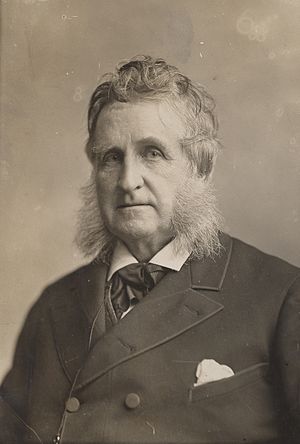“There is no genius in life like the genius of energy and industry”
Frank, although as noble a fellow as ever sat a horse, is yet--you
cannot help thinking--very ignorant of Euripides; even the English
master at Dr. Bidlow's school, you feel sure, would balk at a dozen
problems you could give him.
You get an exalted idea of that uncertain quality which turns the heads
of a vast many of your fellows, called--Genius. An odd notion seems to
be inherent in the atmosphere of those college chambers, that there is a
certain faculty of mind--first developed, as would seem, in
colleges--which accomplishes whatever it chooses without any special
painstaking. For a time you fall yourself into this very unfortunate
hallucination; you cultivate it after the usual college fashion, by
drinking a vast deal of strong coffee and whiskey-toddy, by writing a
little poor verse in the Byronic temper, and by studying very late at
night with closed blinds.
It costs you however more anxiety and hypocrisy than you could possibly
have believed.
----You will learn, Clarence, when the Autumn has rounded your hopeful
Summer, if not before, that there is no Genius in life like the Genius
of energy and industry. You will learn, that all the traditions so
current among very young men that certain great characters have wrought
their greatness by an inspiration, as it were, grow out of a sad
mistake.
And you will further find, when you come to measure yourself with men,
that there are no rivals so formidable as those earnest, determined
minds which reckon the value of every hour, and which achieve eminence
by persistent application.
Literary ambition may inflame you at certain periods and a thought of
some great names will flash like a spark into the mine of your purposes;
you dream till midnight over books; you set up shadows, and chase them
down,--other shadows, and they fly. Dreaming will never catch them.
Nothing makes the "scent lie well" in the hunt after distinction, but
labor.
And it is a glorious thing, when once you are weary of the dissipation,
and the _ennui_ of your own aimless thought, to take up some glowing
page of an earnest thinker, and read--deep and long, until you feel the
metal of his thought tinkling on your brain, and striking out from your
flinty lethargy flashes of ideas that give the mind light and heat.
“Hard, withering toil only can achieve a name; and long days and months and years must be passed in the chase of that bubble, reputation, which, when once grasped, breaks in your eager clutch into a hundred lesser bubbles, that soar above you still.”
But no—you will not, you can not believe this of Nelly; that face of
hers is too mild and gracious; and her manner, as she takes your hand,
after your heart is made sad, and turns away those rich blue
eyes—shadowed more deeply than ever by the long and moistened fringe;
and the exquisite softness and meaning of the pressure of those little
fingers; and the low, half sob, and the heaving of that bosom in its
struggles between love and duty—all forbid. Nelly, you could swear, is
tenderly indulgent, like the fond creature that she is, toward all your
short-comings, and would not barter your strong love and your honest
heart for the greatest magnate in the land.
What a spur to effort is the confiding love of a true-hearted woman!
That last fond look of hers, hopeful and encouraging, has more power
within it to nerve your soul to high deeds than all the admonitions of
all your tutors. Your heart, beating large with hope, quickens the flow
upon the brain, and you make wild vows to win greatness. But alas, this
is a great world—very full, and very rough:
——all up-hill work when we would do;
All down-hill, when we suffer.[3]
Footnote 3:
_Festus._
Hard, withering toil only can achieve a name; and long days, and months,
and years, must be passed in the chase of that bubble—reputation, which,
when once grasped, breaks in your eager clutch into a hundred lesser
bubbles that soar above you still!
A clandestine meeting from time to time, and a note or two tenderly
written, keep up the blaze in your heart. But presently the lynx-eyed
old guardian—so tender of your interests and hers—forbids even this
irregular and unsatisfying correspondence. Now you can feed yourself
only on stray glimpses of her figure—as full of sprightliness and grace
as ever; and that beaming face, you are half sorry to see from time to
time—still beautiful. You struggle with your moods of melancholy, and
wear bright looks yourself—bright to her, and very bright to the eye of
the old curmudgeon who has snatched your heart away. It will never do to
show your weakness to a man.
At length, on some pleasant morning, you learn that she is gone—too far
away to be seen, too closely guarded to be reached. For awhile you throw
down your books and abandon your toil in despair—thinking very bitter
thoughts, and making very helpless resolves.
My cigar is still burning, but it will require constant and strong
respiration to keep it in a glow.
